Left Market Anarchist Zines: the universe is public domain.
This is a digital archive of left market anarchist zines and pamphlets.

The materials in these collections are laid out for printing double-sided and binding into booklets for distribution. In order to read them on your screen, you'll need to follow the zig-zag pattern to the right. Start on the right-hand side of page 1, then read the left-hand side of page 2, then back and forth until you reach the end. At the end, switch, and move page by page back towards the beginning.
Below are some highlighted introductary resources; select a category to the right for a great deal more content. To order high quality printed physical copies as well as full books and other materials for a lending library or tabling project visit store.c4ss.org. You can also download an archive of every zine.
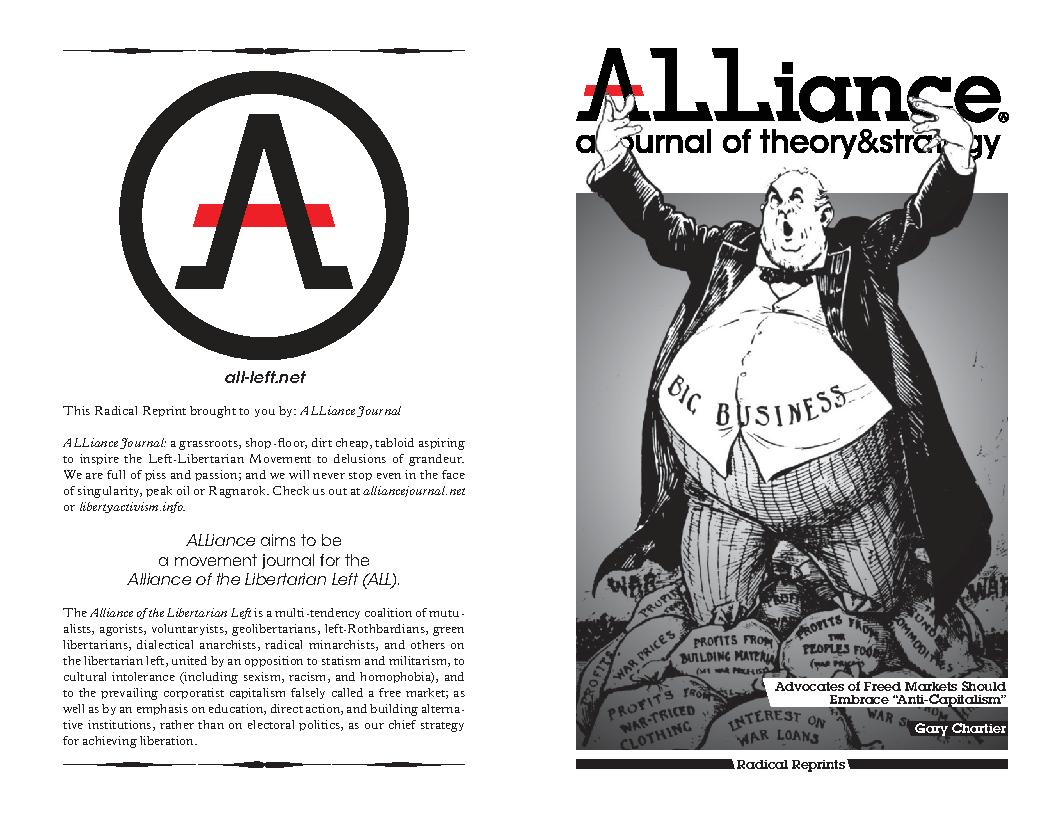
ALLiance: Advocates of Freed Markets Should Embrace Anti-Capitalism
Freed-market advocates should embrace “anti-capitalism” in order to encapsulate and highlight their full-blown commitment to freedom and their rejection of phony alternatives that use talk of freedom to conceal acquiescence in exclusion, subordination, and deprivation.
Topics:
agorism, alliance, anarchism, introduction, theory
Authors:
Gary Chartier
Publisher:
ALLiance: A Journal of Theory & Strategy
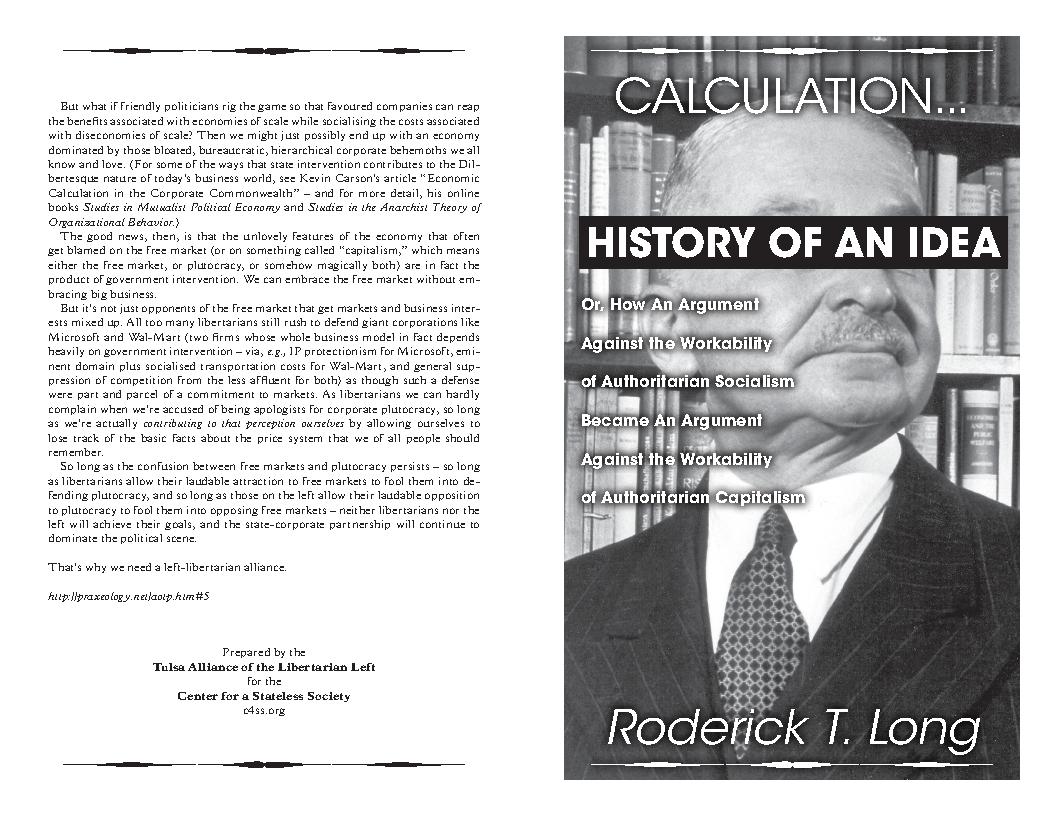
Calculation: History of an Idea
Or how an argument against the workability of authoritarian socialism became an argument against the workability of capitalism.
Topics:
introduction, theory
Authors:
Roderick Long
Publisher:
Molinari Institute
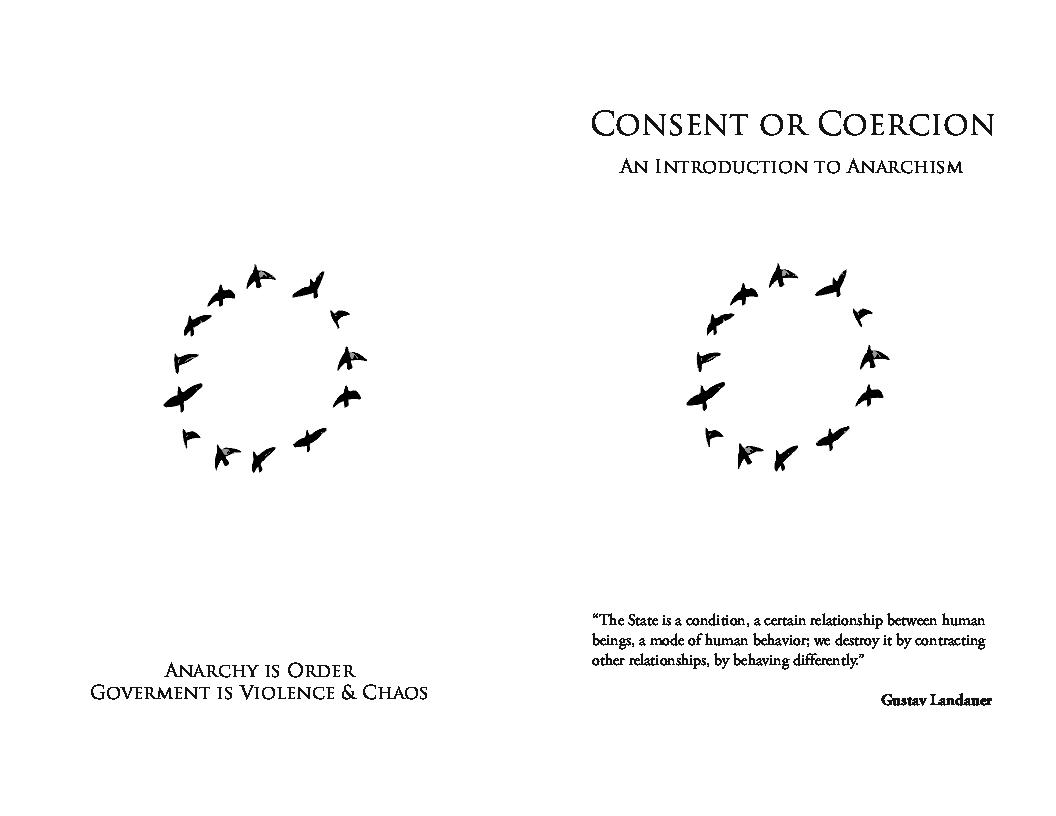
Consent or Coercion: An Introduction to Anarchism
A guide to voluntary cooperation to meet everyone’s needs, without bosses or rulers, and without sacrificing individual liberties.
Topics:
anarchism, introduction
Authors:
Ed Stamm, others
Date:
1995
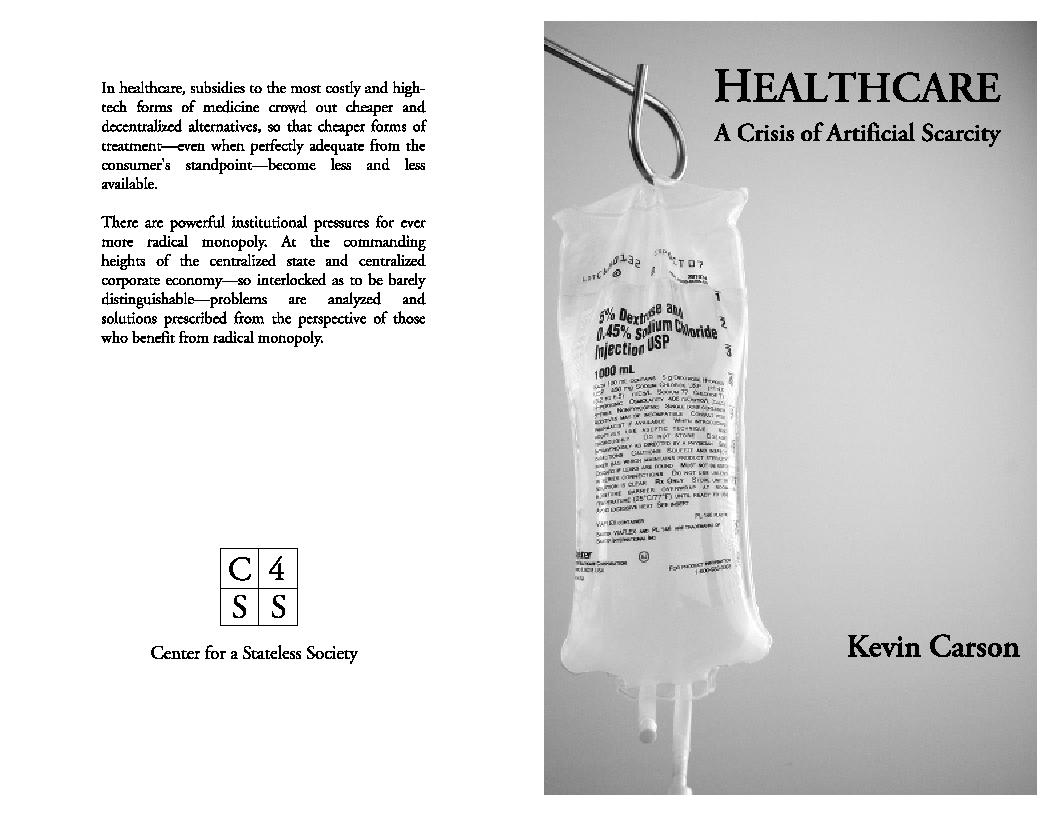
Healthcare - A Crisis of Artificial Scarcity
In healthcare, subsidies to the most costly and high-tech forms of medicine crowd out cheaper and decentralized alternatives, so that cheaper forms of treatment--even when perfectly adequate from the consumer's standpoint--become less and less available. There are powerful institutional pressures for ever more radical monopoly. At the commanding heights of the centralized state and centralized corporate economy--so interlocked as to be barely distinguishable--problems are analyzed and solutions prescribed from the perspective of those who benefit from radical monopoly.
Topics:
introduction, mutualism, studies, theory
Authors:
Kevin Carson
Publisher:
Center for a Stateless Society
Sources:
http://www.c4ss.org/
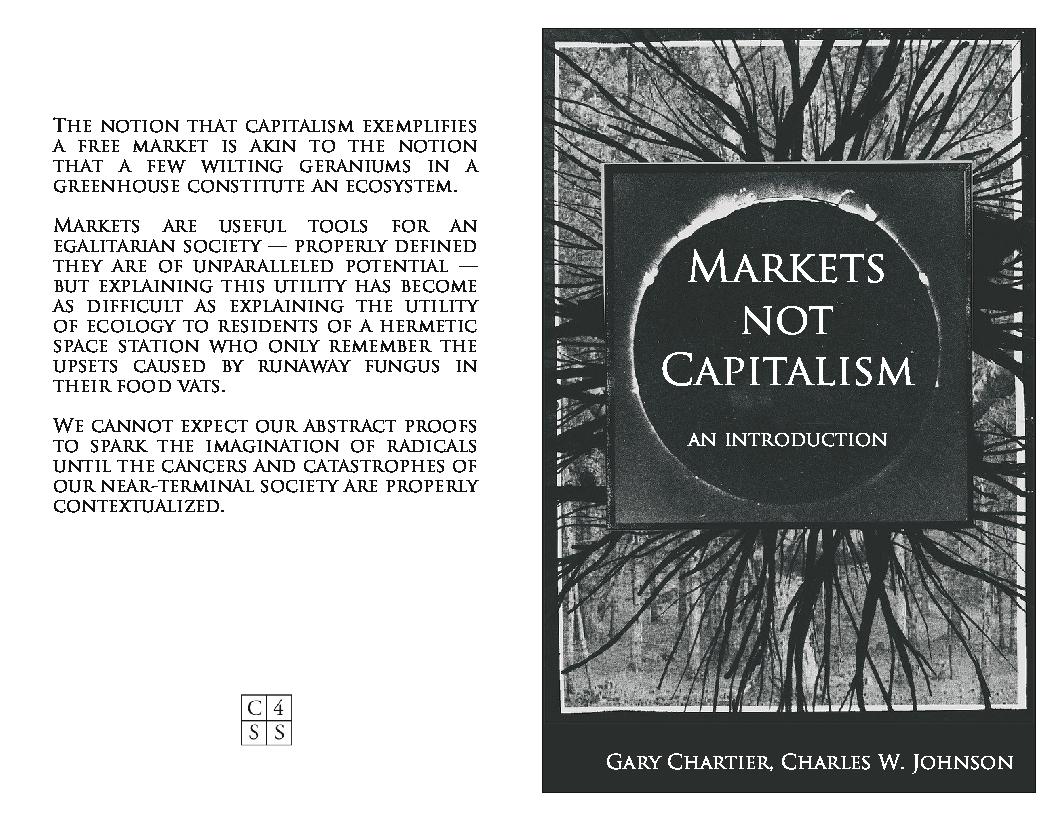
Markets Not Capitalism - An Introduction
An introduction to Market Anarchism, a theory of exchange based on individual agency and interaction rather than socio-economic privilege.
Topics:
anarchism, capitalism, introduction, theory
Authors:
Charles W. Johnson, Gary Chartier
Publisher:
Center for a Stateless Society
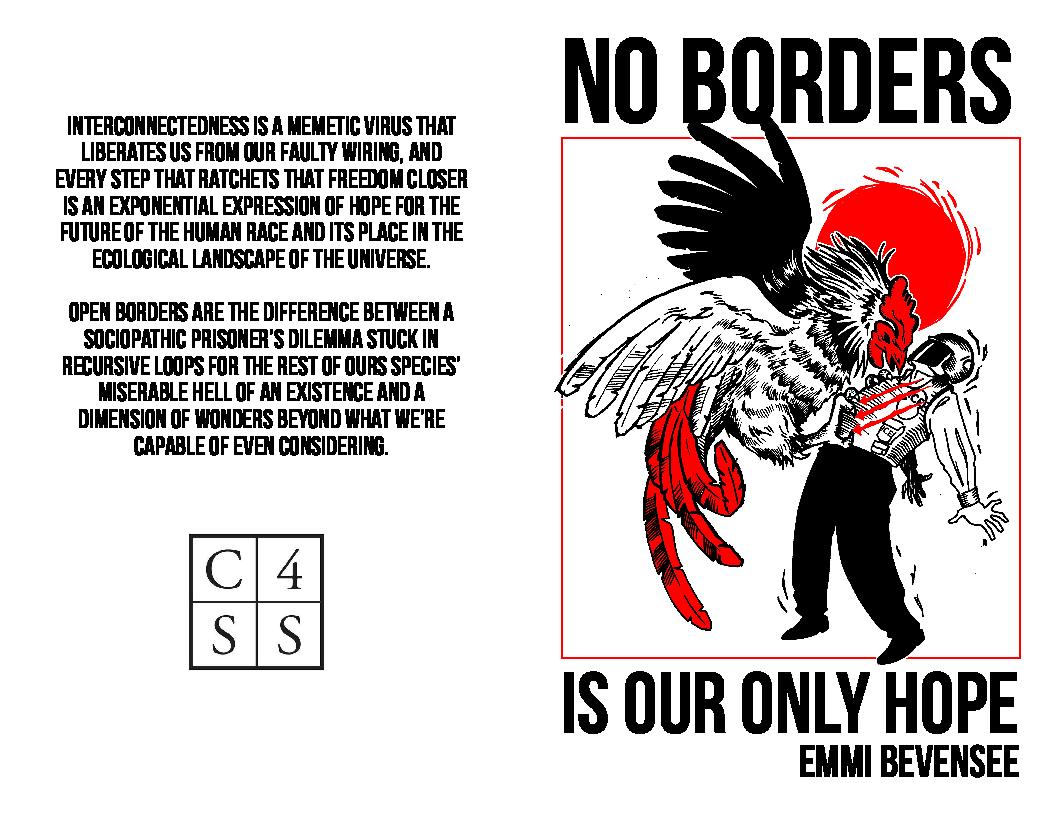
No Borders Is Our Only Hope
Protect migrants and undocumented people from the U.S. gestapo of Border Patrol and ICE. When you run across those who wear rifles to enforce borders, treat them as terrorists and, if we have a future, it will look kindly on you.
Topics:
anarchism, introduction, theory
Authors:
Emmi Bevensee
Publisher:
Center for a Stateless Society

No Citizens: Abolishing Borders Beyond The Nationstate
While the border is, has been, and hopefully always will be an impossibility, a fiction imposed by state planners on a world much too resistant and messy to be divided in these ways, it is also a key site where the state struggles to impose a particular version of order. It is crucial that we work to undermine both these physical borders and the logics that underpin them.
Topics:
anarchism, introduction, theory
Authors:
Leif J
Publisher:
Center for a Stateless Society
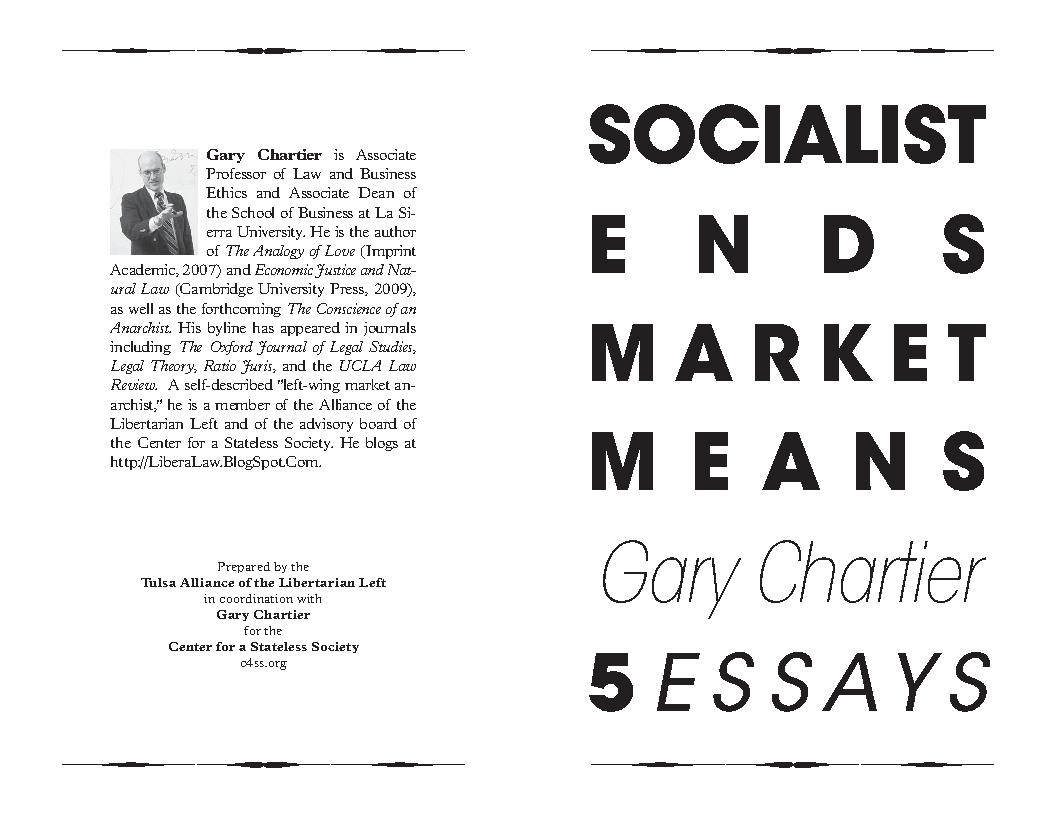
Socialist Ends Market Means
'Framing Left Libertarianism: A First Pass', 'The Left in Left Libertarian', 'Socialism' for Left Liberty', 'Socialism Revisited','State Socialism and Anarchism: How Far They Agree and Wherein They Differ Regarding Health-Care Reform'
Topics:
anarchism, introduction, theory
Authors:
Gary Chartier
Sources:
http://www.c4ss.org/, http://liberalaw.blogspot.com/
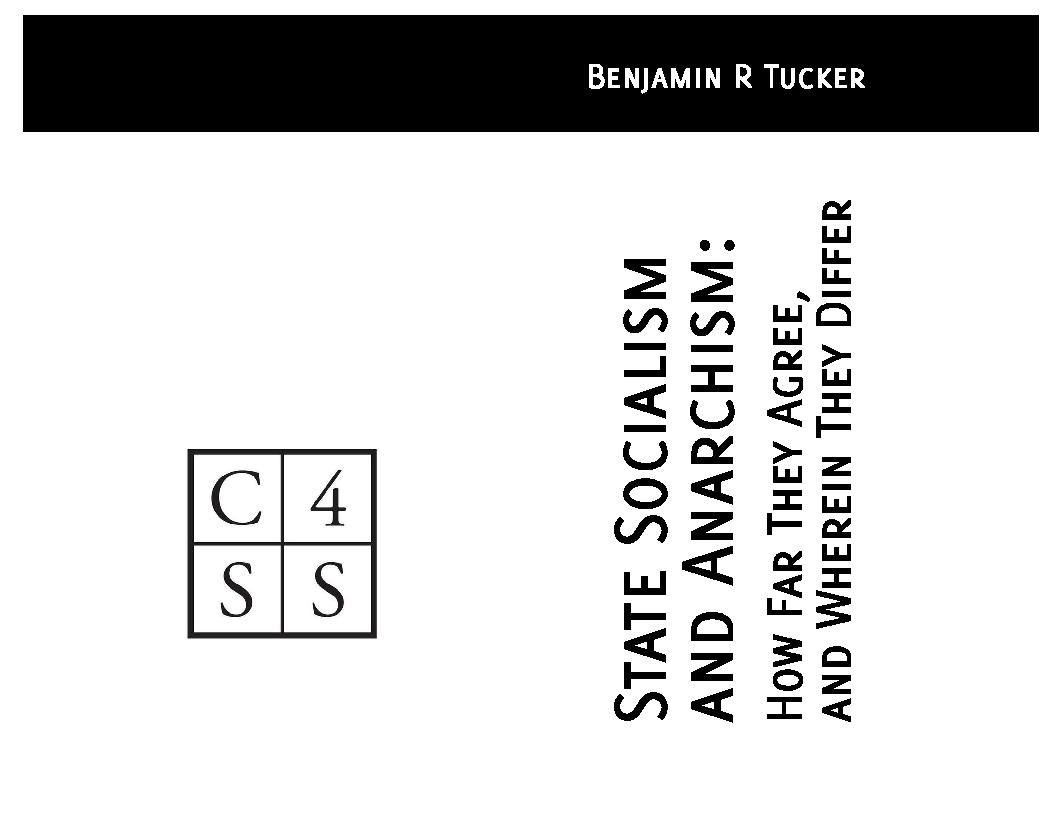
State Socialism and Anarchism
Benjamin R. Tucker was born in Massachusetts in 1854, educated in a Quaker school, and raised in the radical intellectual environment of the Boston area at the time. He found himself drawn into anarchism as a young man and became a journalist and editor. After working for just over a decade at the Boston Daily Globe, he founded the journal Liberty, which became one of the most prominent outlets for anarchism in the Gilded Age.
Topics:
anarchism, historical, introduction, mutualism, theory
Authors:
Benjamin Tucker
Date:
1888

The Free Market As Full Communism
As surprising as it might seem, there’s a strong parallel between this free market vision of abundance and the Marxist vision of full communism... Much as capitalist production started out in tiny islands inside the larger feudal economy and later became the core of a new, dominant social formation, commons-based peer production is the core around which the post-capitalist economy will eventually crystallize.
Topics:
anarchism, introduction, mutualism, theory
Authors:
Kevin Carson
Date:
2012

The Iron Fist Behind the Invisible Hand
Corporate Capitalism as a State-Guaranteed System of Privilege
Topics:
anarchism, introduction, mutualism
Authors:
Kevin A Carson
Date:
2001
Sources:
http://mutualism.org/
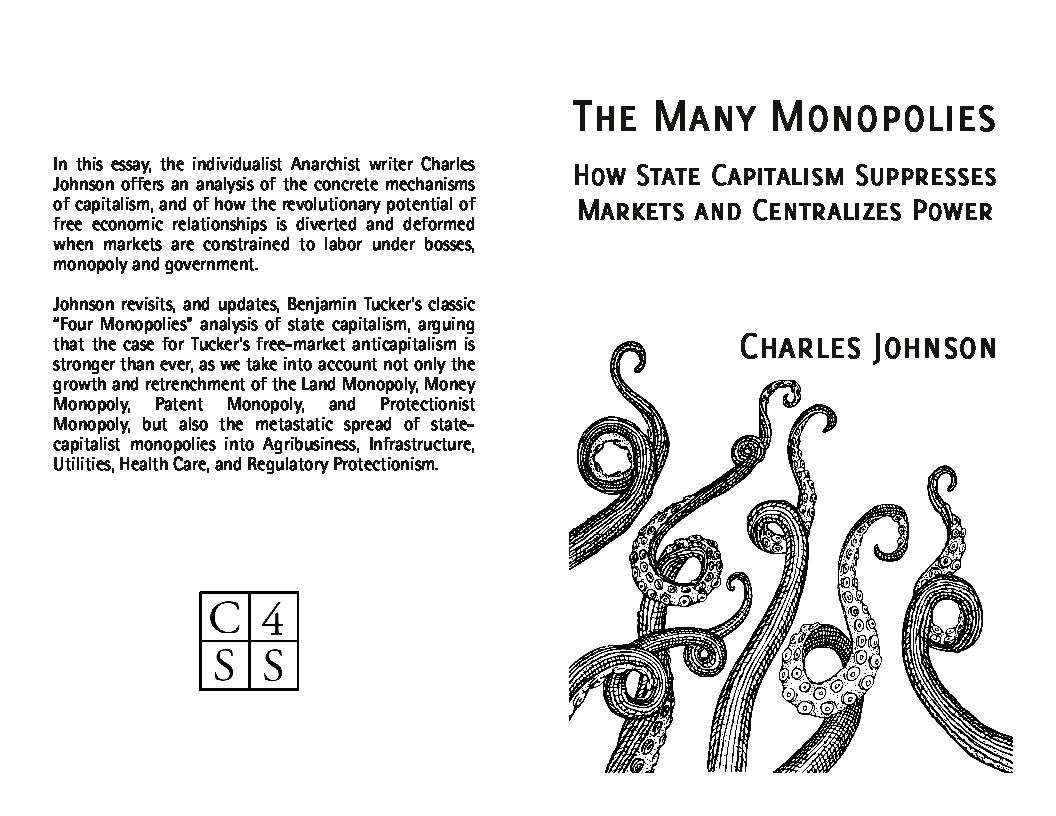
The Many Monopolies
We might say—with apologies to Shulamith Firestone—that the political economy of state capitalism is so deep as to be invisible. Or it may appear to be a superficial set of interventions, a problem that can be solved by a few legal reforms, perhaps the elimination of the occasional bailout or export subsidy, while preserving intact the basic recognizable patterns of the corporate economy. But there is something deeper, and more pervasive, at stake. A fully freed market means liberating essential command posts in the economy from State control, to be reclaimed for market and social entrepreneurship. The market that would emerge would look profoundly different from anything we have now.
Topics:
anarchism, introduction
Authors:
Charles Johnson
Publisher:
FEE
Date:
2011

Your Freedom Is My Freedom
Anarchism is not and has never been a proclamation that if we overthrow a given state — wherever the extent of that state is to be drawn — utopia will immediately result. Anarchism is not a claim about 'human nature' or a simplistic reflex of negation. Anarchism is daring to see beyond the suffocating language of power.
Topics:
anarchism, introduction, theory
Authors:
William Gillis
Date:
2017
